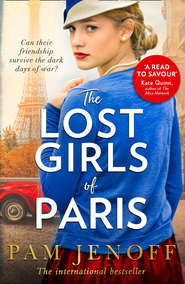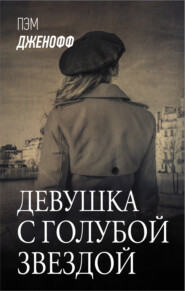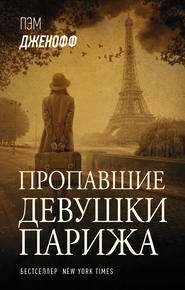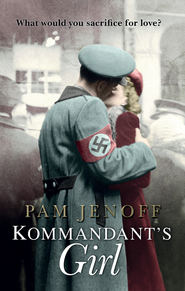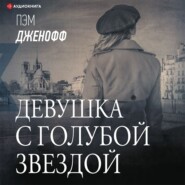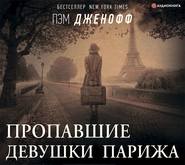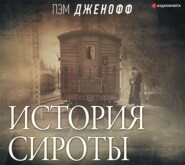По всем вопросам обращайтесь на: info@litportal.ru
(©) 2003-2024.
✖
The Last Embrace
Настройки чтения
Размер шрифта
Высота строк
Поля
Then a wave rose behind him and thundered down. Panic gripped me once more. “You go on.” I stretched out in what I hoped would be a glamorous position on the blanket. A biplane buzzed overhead, advertising the diving horse show at Steel Pier.
Jack settled down beside me on the blanket and pulled a book from his mother’s bag. The Red Badge of Courage; I’d never heard of it. “Summer reading assignment,” he said, noticing me looking.
“Oh.” I didn’t know if I was meant to be reading something over the summer. “I’m worried,” I confessed.
“About school? Don’t be. I’m sure the other kids are going to like you a lot.” Jack smiled so brightly I almost believed him.
“It’s the schoolwork. I’m mostly nervous about the writing.”
“Why don’t I help you? Tutoring, they call it.”
Robbie peered over Jack’s shoulder. “Whatcha doing? Homework in summer. Aack!” He ran away.
“It’s the beach, for goodness’ sake!” Liam protested as he followed Robbie to the surf.
“Buddy system!” Mrs. Connally called after them. Her eyes darted back and forth attentively, never leaving the water.
“Don’t worry, I’ve got them,” Charlie called from the water’s edge. He dove in without hesitation, then swam out to meet his brothers, his stroke as smooth and confident as a lifeguard.
“Come on, Addie!” Robbie cried, his voice drowned out by the crashing of a wave. I watched longingly, wanting for once to take part in the fun, instead of simply standing on the sidelines watching.
But I couldn’t. Instead, I took some of the lotion Mrs. Connally offered. Sand from my fingers mixed with it as I rubbed it into my arms. I inhaled deeply, gazing northward down the beach where the boardwalk bustled in front of the Claridge Hotel and Convention Hall. Haze swirled around the top of the roller coasters and other amusements on the piers that jutted out into sea. The air was salty but curiously sweet, a bit of taffy or caramel corn drifting in from the piers.
A few minutes later Jack closed his book and went to join his brothers in the water. I lay back, squirming against some sand which had worked its way into the bottom of my bathing suit. I closed my eyes and let the sun lull me into a semi-nap. My parents appeared in my mind. We had been happy once like the Connallys. I saw Mamma and Papa dancing around the kitchen, the three of us and Nonna enjoying long leisurely meals of fish and cheese and bread out on our balcony in summertime. When I was ten, I had asked if it was the lunches that were making Mamma’s belly round. She just laughed. She and I spent long days strolling the city, wading in the fountains and pointing out interesting things until it was time for Papa to come home.
Only one day he didn’t. At first Mamma tried to be cheerful. “He’s just gone to see friends,” she reassured. But a night passed, then another, and then she forgot to maintain her pretense of calm. She left me with Nonna and did not return by morning. I tried to pray in the darkness at night for their safe return. Please, I said over and over again, because I did not know any other words. It seemed to work, because two days later Mamma came back. She was pale and drawn—and still alone. She took to her bed. Nonna ran for the doctor.
A few days later, Mamma emerged, but her stomach no longer swelled as much. “Is Papa still with friends?” I asked.
Mamma shook her head. “No,” she replied bluntly, not bothering to cushion the truth. “He’s been arrested.” My heart froze. I’d seen a man once, taken from the street by the police. People whispered that he would not come back. I prayed more, adding more pleases until I was saying the word a thousand times each night before finally falling asleep.
Papa did return a week later, walking through the door as unexpectedly as he had disappeared. He looked the same, right down to the same clothes, now dirty and creased. He’d even managed to keep the mizpah heart and not have it taken. But he fell into a chair with a wince that suggested he was hurting on the inside, and a haunted look in his eyes that did not go away. He did not return to his work after that but wrote from home, welcoming in the occasional visitor. Instead it was Mamma who took to the streets, leafleting and attending meetings and protests against the Fascist regime, calling for elections.
I jumped as a drop of cold water hit my back and the vision evaporated. I rolled over. Liam stood over me, a mischievous grin in his eye. He had come up from the water’s edge, shaking droplets of water from his hair like a wet dog.
“Why, Addie,” he drawled. “You haven’t even gotten wet. You’re missing all of the fun.”
“I’m fine,” I protested, but he reached down and picked me up. I tried to pull away but his wiry grip was surprisingly strong.
“Liam Scott Connally, don’t you dare!” his mother began to admonish, but it was too late. Her voice faded as Liam carried me toward the water. “Please put me down,” I begged, flailing. But he stared straight ahead, not listening. The boy who just hours earlier had protected me from a neighbor’s wrath over a broken window was now my tormentor.
I closed my eyes, knowing what was coming next. The waves thundered in my ears, a sound I had heard thousands of times in my nightmares. Water splashed around Liam’s ankles as they reached the surf, kicking up the icy spray against my bare skin. Then he let me go. I screamed as cold darkness enveloped me. I reached wildly for the bottom, trying without success to find my footing. A powerful wave slammed into me from behind, tossing me like a ball until I could no long figure out which way was up. I flailed my arms, panicking. Water filled my nose and mouth, salt where air should have been.
Suddenly I was lifted to the surface. “Hey.” Charlie’s strong arms encircled me, holding me close as I coughed the water from my burning lungs. “It’s okay. I’ve got you.” He had reached me in a few long strokes. “Easy.” His voice was soothing. He raised me higher as a wave lifted them so it would not break on me. “I’ve got you.” I did not answer, but leaned my head against the wetness of his chest, still trying to catch my breath.
A second later Jack reached us. “Addie, are you okay?”
“That was so cool,” Robbie exclaimed, dog-paddling up from behind. He and Jack followed Charlie as he carried me to shore.
Charlie neared the beach blanket and set me down gently. Mrs. Connally wrapped a towel around me. “Liam, how could you?” she demanded. “Addie, are you all right, dear?”
“It was a joke,” Liam replied defensively.
“You idiot,” Charlie swore. Liam’s face crumpled and he slumped forward, as though he had been punched in the stomach. Clearly his older brother’s opinion meant everything.
I nodded and assured Mrs. Connally I was fine. A man carrying a white ice cooler on his back walked down the beach calling out, “Ice cream!” Mrs. Connally fished in her bag for coins. “Come with me, boys,” she said, standing. Robbie and Jack started after her. Liam hung back, watching Charlie, as if wanting to make what he had done all right. But Charlie did not look away from me, until finally Liam followed the others reluctantly.
Charlie put a hand on my shoulder and slid closer. “You want to talk about it?”
My trembling eased slightly. “There’s nothing to tell.” I fought the urge to put my head on his shoulder. Though I’d only just met Charlie, he seemed to have a way of making everything okay—even the beach.
“But Trieste is on the coast, isn’t it? You’ve lived by the water your whole life. You can’t swim at all?”
“I don’t know,” I confessed, pulling the towel closer around me. “I can’t even breathe when I get near the ocean.”
“I could try to help you.”
“No, thanks.”
“You’re not ready. I understand.” I wanted to tell him I never would be. “I hope you’ll come to the beach with us anyway. ’Cause I promise,” he added, shooting a murderous look down the beach toward Liam, “that what happened today will never happen again.”
(#ulink_7b2666e1-a824-5644-ac6d-fc0dc3a6a1e3)
I was losing the battle to stay awake in civics class as Mrs. Lowenstein droned on about wartime production in Britain. I blinked against heavy eyelids, but the polka dots of her dress seemed to blend together, making my vision swim. Normally I enjoyed the class, which purported to be about the past two centuries of history, but in fact focused unabashedly on the war in Europe. But Mrs. Lowenstein’s monotone recitation of facts about steel manufacturing today hardly seemed relevant.
The rest of summer had passed much like that first day with the Connallys, afternoons on the beach with the boys and trips to the boardwalk in the evening. But then the days began to shorten and we only had a bit of time on our Schwinn bikes after dinner before the sun dropped low to the bay. There was a tiny release in the humidity, like air leaking from a balloon.
One day I spied Aunt Bess taking out a large box. “What are you doing?”
“Packing. It’s only a week until we return to the city and we have to register you for school.” Life at the shore was all that I had known here. I had almost forgotten about Philadelphia.
“What grade will I be in?”
Aunt Bess looked confused. “I suppose they’ll have to test you.”
“Will I need to bring my own school supplies? How will I get there?” I piled my questions on top of one another, realizing from her expression that she did not know the answer. She had not done this before either.
She paused to set down the pile of shirts she’d been packing, then swiped at her brow. “I suppose,” she said, “we will have to figure out all of this together.”
“I don’t want to go,” I had burst out to Jack as he helped me through Steinbeck’s Of Mice and Men on the porch of his family’s beach house that evening.
“We’re not that far from you in the city,” Jack offered. “We might even have classes together.” But I was not consoled—it was not the same as being next door, hearing their laughter through the open window as I fell asleep.
I waited until a few days after we returned to the city to ask. “I want to go see the Connallys.” We had just finished supper at Aunt Bess and Uncle Meyer’s house on Porter Street in the small dining room sandwiched in between the parlor in front and kitchen in back. The row house was so narrow I could almost touch both sides with my arms outstretched.
We’d moved into the parlor after eating, sitting three across on the flowered, slip-covered sofa, facing the fireplace we never used. Aunt Bess may have tried to seem American outside, but the house was filled with tarnished framed photos of grandparents and other relatives from the old country and the Shabbes candlesticks and Kiddush cup sat on the mantel.
Aunt Bess was reading Home Chat magazine while Uncle Meyer smoked his cigar and listened studiously to the news on the radio. I had waited until after the weather report to bring up the Connallys. Uncle Meyer followed the forecasts and their accuracy as studiously as though he was embarking on a great sea voyage. Even Aunt Bess, who spoke at him constantly, did not talk during the weather. But I had to ask quickly; after the news, Uncle Meyer would retreat to the basement, where he’d constructed an elaborate model railroad, complete with farms and a town, stretching nearly the length of the parlor above. I wondered if he wished I’d been a boy so he might have someone to share it with.






